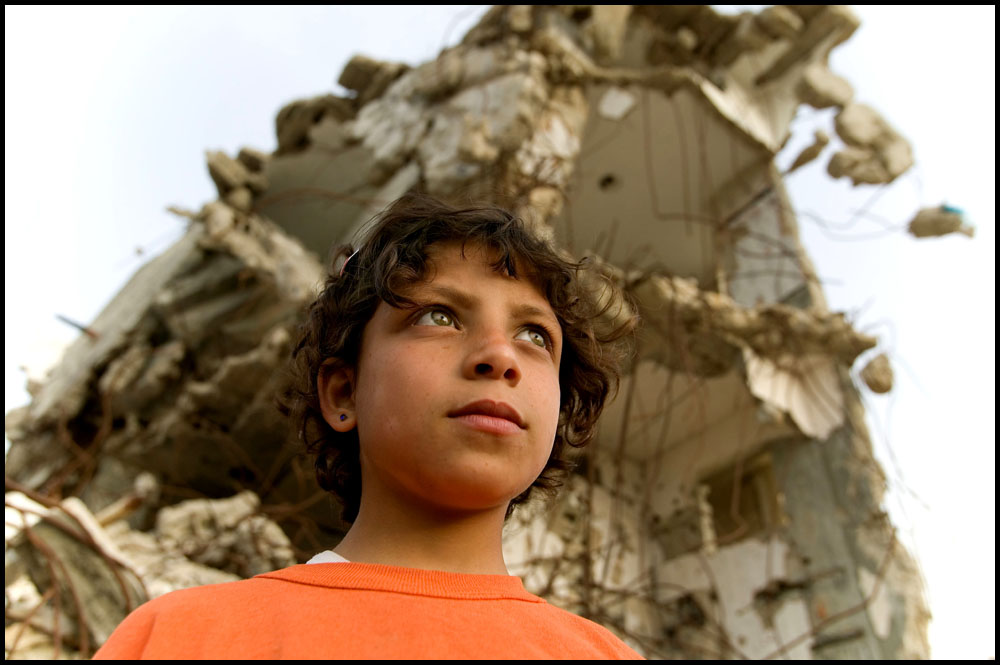Originally published at MintPress News.
MINNEAPOLIS — Israel launched new airstrikes against Gaza on Tuesday, claiming the action was in retaliation for a lone rocket fired earlier that day. The media views each such exchange in isolation, yet the Israeli government engages in deliberate provocations and ceasefire violations on a nearly daily basis against Gaza.
Israel’s brutal attack on Gaza last summer killed over 2,000 people, mostly civilians, and left another 300,000 homeless. Active and open conflict ended with the signing of a ceasefire on Aug. 26. Then, this week Israel retaliated to a single rocket fired from Gaza by bombing several targets in Gaza it said represented military infrastructure. There were no reported casualties.
The mainstream media was quick to offer Israel’s side of the conflict. “These strikes are a direct response to Hamas and the aggression against Israeli civilians originating from the Gaza Strip,” Israeli military spokesman Lt. Col. Peter Lerner said in a statement.
But, as with most such rocket attacks, there were no injuries in Israel. In what Palestinians living in Gaza call self-defense against Israel’s inhumane siege of the Gaza Strip, homemade rockets directed at Israel are a response to Israel blocking humanitarian aid, medical supplies, food, or human rights monitors and journalists documenting Israel’s alleged war crimes against the impoverished region through the siege. And this latest rocket cannot be separated from months of provocative behavior by Israeli forces.
https://twitter.com/benabyad/status/603452552517124096
Writing earlier this month for Mondoweiss, Dan Cohen described the unstable situation between Israel and Palestine as a “one-way ceasefire”:
While Palestinian armed factions have observed the ceasefire, with a handful of exceptions, Israel has violated the ceasefire on a near-daily basis. Soldiers fire at farmers in the buffer zone, gunboats shoot at fishermen, and warplanes and drones are a regular sight over Gaza’s skies. In the period of January through March of 2015, conservative estimates tallied 67 Israeli shootings and six military incursions, resulting in the death of one Palestinian and injuries to sixteen.
According to Cohen, the media silence in the face of these incursions provides cover as Israel prepares for a new war, which he warned will be “will be even more catastrophic than the last.”
Remember that less than 48 hours before a rocket was launched, Israeli forces shot 2 Palestinian civilians in Gaza http://t.co/TDHyhSOvsP
— Dan Cohen (@dancohen3000) May 27, 2015
Two Palestinian fishermen were shot by the Israeli navy on Monday, the day before the rocket was fired from Gaza, and another shot on Wednesday, just a day after the attack. The shootings are part of an ongoing blockade on the Port of Gaza that has left Palestinians struggling to find food, unable to export goods, and lacking in supplies needed to repair their damaged infrastructure.
Supporters of Palestinian liberation took to social media to criticize the hypocrisy of the mainstream media:
400 rockets into #Gaza & 4 rockets from Gaza… Yet Israel, the U.S., Western Powers, MSM want you to believe it’s defense not aggression.
— Bacchus (@theonlybacchus) May 27, 2015
Others questioned why one rocket seemed to have more importance than daily atrocities by allies of the United States:
The sadistic treatment they unleash daily on Palestinians, the horrific suffering next door in Syria, Yemen bombed daily…1 projectile tho
— Barrel Bomb Expert (@TerrinaMajnoona) May 27, 2015
Rania Khalek and Ali Abunimah, two journalists from Electronic Intifada, an online news resource focused on Palestine, highlighted how violence is inevitable as Israel continuously turns up the pressure on the suffering Palestinian population:
Reality check: Israel bombed Gaza for daring to retaliate in self-defense against being locked in a ghetto of rubble and graves.
— Rania Khalek (@RaniaKhalek) May 27, 2015
Given Israel's relentless violence on every aspect of their lives, it's a wonder that retaliatory violence by Palestinians is so rare.
— Ali Abunimah (@AliAbunimah) May 27, 2015
Meanwhile, Mohammed Omer, a reporter in Rafah, described a fearful population anticipating new attacks which could begin at any moment:
https://twitter.com/Mogaza/status/603488060882452481
“Now it is neither peace nor war in Gaza,” he tweeted Wednesday.
Israel’s blockade and breaking of the so-called “ceasefire” takes place daily, according to Electronic Intifada:
- Gaza remains sealed to travel, except for very occasional passage through the Rafah crossing with Egypt.
- Only those with medical permits or those with permits to stay abroad can exit through Rafah, but travel is so severely restricted that tens of thousands, even those with advanced cancer, often wait in Gaza for passage.
- Construction materials may not be brought into Gaza. According to Oxfam, even fewer materials enter now than before the devastation and widespread homelessness caused by last summer’s attacks. “At this rate it would take more than 23 years to meet ‘immediate’ needs alone,” states Oxfam.
- Israel blocks almost all exports, further weakening Palestine’s economy. The total number of trucks allowed out this year is about half as many as might have left on an average week before last summer.
- Israel’s military uses deadly force to enforce Gaza’s occupation, including opening fire on farmers who attempt to access the fertile land near the border wall.
- Israel has violated the ceasefire on a daily basis since August, which includes injuring scores of Palestinian protesters and civilians with live ammunition, 45 incidents of naval fire, 35 incidents of border fire, and an estimated half-dozen instances where the army has actually crossed the border. During that time, Oxfam estimates that 15 rockets were fired from Gaza — a figure that includes test rockets fired over the ocean.
Correction: A previous version of this article stated that Hamas-led forces fired the rocket from Gaza. However, media reports suggest that this is incorrect, and no group has claimed responsibility for the rocket at this time. We regret the error.
